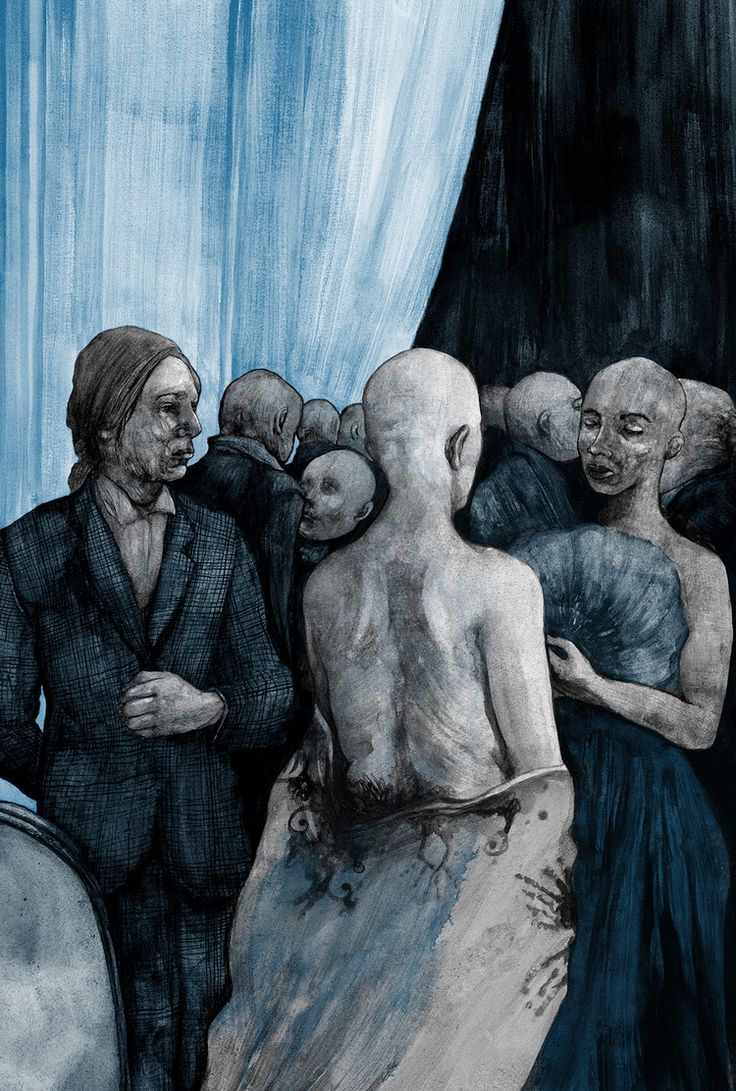The Dispossessed is not merely a science fiction novel; it is also a profound philosophical inquiry that holds a mirror to societal structures by engaging with various philosophical movements. Through the fictional worlds of Anarres and Urras, the novel explores concepts such as freedom, anarchism, ethics, and gender—issues that remain the subject of ongoing debate in the real world. To better understand the novel, it is necessary to examine the notion of anarchism. The term derives from the Ancient Greek words an- (a negative prefix) and archos (ruler), literally meaning “without a ruler.” Anarchism entails a rejection of all forms of authority and a commitment to continuous struggle. It embodies both a sense of responsibility and an unending revolution. Le Guin defines revolution as follows: “You cannot buy the Revolution. You cannot make the Revolution. You can only be the Revolution. It is in your spirit, or it is nowhere.” (Le Guin, 2017: 257) From an anarchist perspective, Le Guin interweaves currents such as Taoism, feminism, ecologism, and communism through various characters and events, offering a critical reflection on contemporary systems. For instance, the planet Urras—home to capitalist and hierarchical societies—includes the country A-Io, whose economic and ideological structure is widely interpreted as an allegory for the United States. Similarly, the state of Thu, the homeland of the character Chifoilisk, can be seen as representing the Soviet Union. This article aims to compare the planets Anarres and Urras ideologically, to delve deeper into the philosophical concepts addressed by the author, and to reveal how Le Guin’s imagined worlds ultimately evolve into dystopias.
Plato’s Republic can be regarded as the first work to envision a utopia—a perfectly ordered society where conditions are equal for all citizens. It imagines a world designed for the welfare of humanity, governed by a well-structured political and social order. When comparing the two fictional planets of The
Dispossessed, one can employ Hegel’s dialectical framework. In dialectics,
being is formed through the triadic process of thesis, antithesis, and synthesis. Anarres and Urras stand as thesis and antithesis—two opposing systems. The protagonist Shevek embarks on a journey toward synthesis. Rather than idealizing either system, Shevek seeks to transcend their limitations in pursuit of a new conception of ethics and freedom. This synthesis, as in dialectical materialism, aims to generate transformation through the internal contradictions of each system. In this way, Le Guin presents social events and revolutions as part of a dynamic process of change and renewal. This perspective also aligns closely with Heraclitus’s doctrine of becoming, and corresponds to the novel’s portrayal of time as fluid and non-linear.
The planet Urras represents real-world totalitarian regimes—worlds where democratic rights and freedoms are entirely suppressed, political power is concentrated in the hands of a few, and the state is governed through terror, oppression, and tyranny. It is a property-obsessed world dominated by capitalism. The name “Urras” is derived from the two superpowers of its time: the United States and the Soviet Union. Urras is a patriarchal, hierarchical, ecologically unsustainable world where individual interests prevail. By contrast, the name “Anarres” evokes the concept of anarchy; the Latin suffix -res can also be interpreted as “beyond things” or “independent of things.” Life on Anarres, unlike many utopias, is extremely difficult. The climate is harsh and resources are scarce. Yet what makes Anarres utopian is not its abundance but its social welfare and political ideology. There is no private property; despite the barren land, individuals fulfill their responsibilities to one another, and voluntary action
becomes the foundation of society.
The anarchists who led a revolution under Odo’s guidance on Urras eventually settled on Anarres, cutting most ties with the old world. The governing structure of Anarres incorporates elements of anarcho-communism and collectivism. “Collectivist anarchism,” which spread across many countries that supported social revolution, advocated for the application of the principle summarized as “from each according to their ability, to each according to their labor.” After the death of Bakunin, who helped develop this current, collectivist anarchism weakened and gradually evolved into anarchist communism (Felsefe Ansiklopedisi, 2003: 371).
In Anarres, a system based on “responsibility” governs social life. When individuals avoid their responsibilities, freedom and even life itself may be lost. Therefore, citizens approach their duties with a sense of self-discipline and carry them out with enthusiasm. For them, labor is a matter of conscience, distant from the coercive and ego-driven notions of ownership propagated by capitalism.
Shevek, a physicist born on Anarres, is a diligent professor working on a new theoretical model that could enable faster-than-light travel. When he decides to share his theory openly, he is met with hostility from his fellow Anarresti and boards the ship Davenant, which will take him to Urras. By doing so, Shevek breaks down the long-standing wall of “proprietorship” between the two worlds and initiates contact with Urras, where he encounters a radically different system and society.
In addition to addressing systemic critique, freedom, and ethics, The Dispossessed also draws attention to gender equality. The society of Urras is patriarchal, shaped by hierarchy and inequality. In a conversation at the beginning of the novel between Shevek and Dr. Kimoe, the prevailing view on gender in each society is made clear. The Urrasti doctor claims that everything feminine is weak, physically inferior, and that women perform poorly in fields such as physics, mathematics, and intellectual pursuits. In response, Shevek argues that as long as machines exist, physical strength is irrelevant and, in many cases, women are even more resilient and industrious than men.
On Anarres, however, a feminist understanding dominates. Men and women are considered equal. Women can be engineers, physicists, laborers; men can take care of children. Virginia Woolf’s famous assertion—that “a woman must have money and a room of her own if she is to write fiction”—is reflected in the way Anarresti women have access to equal opportunities and can pursue any profession. In its view of women, the planet Urras also serves as a mirror of today’s world.
Beyond its overt anarchist themes, The Dispossessed can also be interpreted from another angle: One could imagine that, after witnessing the falseness and corruption of all societal structures both on his own planet and on Urras, Shevek comes to believe that their goddess Odo is dead, and he abandons all systems entirely. In this alternate ending, Shevek would become disillusioned by the selfishness of people and conclude that the existence of a god amid such evil is impossible. He would give up on science and his quest for meaning, resigning himself to the world as it is. This imagined trajectory would align the novel with the philosophy of nihilism. Associated with Friedrich Nietzsche, nihilism would transform Shevek into a character who rejects all ideologies, left alone in a void of meaning, having lost his revolutionary spirit.
Finally, Ursula K. Le Guin’s novel has become a literary masterpiece thanks to its striking resemblance to our contemporary world. Within two vastly different planetary systems, Shevek must grapple with the question: Did he truly possess free will? Even on Anarres—where everyone is supposedly “free”—he questions whether he is truly liberated within the confines of the social order. In this deterministic social structure, Shevek constructs his own moral framework. Despite facing censorship, he insists on expressing his thoughts.
When compared to today’s world, Shevek’s insistence on freedom of thought evokes the youth in modern-day Turkey who refuse to remain silent in the face of injustice—who take to the streets to protest and speak out. To take risks for the sake of moral values is an act of conscience and an assertion of one’s agency. As Le Guin writes in the novel, “The ones who walk away are either faking happiness or have grown numb. We suffer—but not enough. And so we suffer for nothing.” (Le Guin, 2017: 60)
SOURCE:
Ayrıntı Dergi. (t.y.). Ursula K. Le Guin, Mülksüzler ve Anarşizm. Ayrıntı Dergi.
https://ayrintidergi.com.tr/ursula-k-le-guin-mulksuzler-ve-anarsizm/
Felsefe Ansiklopedisi (2003). “Anarşizm” Maddesi, Ed: Ahmet Cevizci, Etik Yay., C.I,
İstanbul.
Gündüz, E. İ. (2013). Mülksüzler: İdeolojik Bir Distopya. Gaziantep Üniversitesi Sosyal
Bilimler Dergisi, 12(1), 123-133.
@kisafilmler.(2023, 7 Temmuz). Mülksüzler: Anarşist bir ütopya mümkün mü? [Video]. YouTube. https://youtu.be/FG1sC6S5IIM?si=lS8UtjEcp0Yd64-f
Le Guin, U. K. (2017). Mülksüzler (Çev. Ç. K. Gürses). Metis Yayınları.
Vikipedi. Anarşizm. https://tr.wikipedia.org/wiki/Anar%C5%9Fizm#:~:text=Anar%C5%9Fizm%2C%20(Antik%20Yunanca’da,hareketleri%20tan%C4%B1mlayan%20sosyal%20bir%20terimdir.
Vikipedi.(2024, Nisan 29). Totaliter demokrasi. Vikipedi. https://tr.wikipedia.org/wiki/Totaliter_demokrasi


